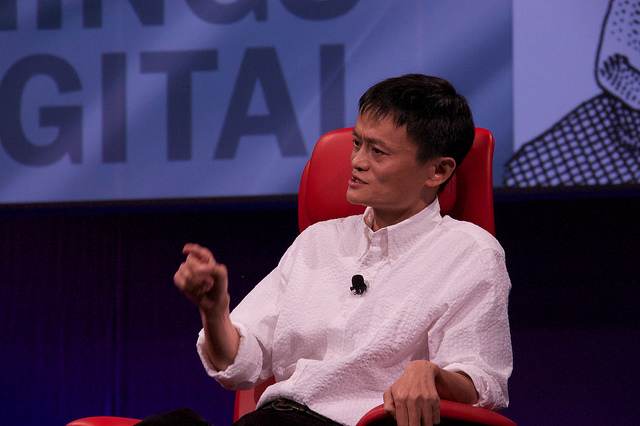
Now that Yahoo is gradually untangling itself from Chinese e-commerce site Alibaba, does the U.S. Web portal’s future look any brighter? Not really.
Yahoo’s agreement over the weekend to sell half of its stake in Alibaba for $7 billion ends a longstanding feud thaty wasn’t benefiting either company. With Yahoo’s share reduced to 20%, Alibaba Chief Executive Jack Ma now has the control needed to steer the company in any direction he chooses. For Yahoo, the deal means it can take the $4 billion it gets after taxes to boost its stock price through a buyback. Investors seemed to like the deal. The company’s stock ended regular trading Monday up roughly 1%.
Despite the immediate bump in share price, how beneficial the agreement will be over time is debatable. Nothing has changed for Yahoo in its struggle to compete for ad dollars with Google and Facebook. Currently, the company has no clear strategy, having lost this month its second CEO since September, when tough-talking Carol Bartz was fired for failing to turn the company around after 32 months at the helm.
Her successor, Scott Thompson, resigned this month after it was discovered he listed on his resume a computer degree he never earned. The current chief executive, Ross Levinsohn, holds the title of interim, so any turnaround is likely to be delayed until he gets the job permanently or someone else is hired.
Behind the scenes, Yahoo has a new board that includes investor activist Daniel Loeb, who uncovered Thompson’s resume problem and used it to force his departure. Loeb likely gave his blessing to the Alibaba deal and is expected to have lots to say about the new CEO.
Loeb, who owns almost 6% of Yahoo through his hedge fund Third Point, waged a proxy battle against Yahoo, because he believed the stock was undervalued due to incompetent management. The Alibaba deal, which Thompson is credited with pulling together, should improve the company’s share price, but analysts disagree over the long-term benefit.
Alibaba Chief Executive Jack Ma
Gene Munster of investment bank Piper Jaffray dropped his stock rating from buy to neutral, saying Yahoo is selling its most valuable asset, given the projected growth of China’s largest e-commerce site. Under the Alibaba deal, Yahoo will hold on to 20% of the company until its expected initial public offering. Yahoo will sell half at the IPO price when Alibaba goes public, and the remainder if its IPO is held by a specific date, which appears to be before December 2015.
“We believe an argument could be made that Yahoo! will be missing out on the upside of a significant portion of its stake despite holding the other half until Alibaba’s IPO,” Munster said, according to Barron’s.
With the Alibaba asset being reduced, shareholders should be looking at Yahoo’s core business, which isn’t showing much life in the online advertising market. “We believe the turnaround of the core company is likely to be a slow, multi-year process now that the company is again working with a new CEO,” Munster said.
On the flip side, analyst Colin Gillis of BGC Capital, gave Yahoo stock its first upgrade following the deal announcement, according to Barron’s. In raising the stock from hold to buy, Gillis saw just the opposite, saying Yahoo benefits now from the sale and will benefit later when Alibaba goes public.
So, no matter who’s right about Alibaba, Yahoo still has to come up with a growth strategy. It doesn’t have a social networking story like Facebook and Microsoft powers its search engine. That leaves it with display advertising, which isn’t expected to be a growing business. In addition, the new board will be hands on and very active in guiding Yahoo’s future, along with the new CEO.
Put it all together, and Alibaba is only the first act of a lengthy drama.
Yahoo photo by

0 Responses
Stay in touch with the conversation, subscribe to the RSS feed for comments on this post.